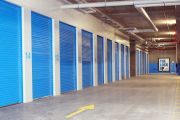
Companies should consider pros and cons of co-working, JLL warns
As co-working providers such as WeWork prepare to launch in Australia, JLL has released a new report on the emerging sector and describes it as far more than a passing trend.
However, the global real estate firm has warned companies to carefully consider the pros and cons of co-working space before deciding to invest in the model in its A new era of coworking report, warning that the model carries distinctive risks.
Co-working is increasingly being used to incentivise employment at particular companies, according to the report, becoming an distinctive attraction for new talent deciding between different companies.
JLL workplace strategy head Dinesh Acharya said increasing competition for talent was driving big business as well as small start-ups to adopt co-working models.
“An increasing number of companies across the world are realising the value that a co-working environment can provide with respect to flexibility, collaboration and inspiration,” he said.
“Companies can realise additional benefits by paying for space ‘just in time’ to increase flexibility and reduce corporate real estate costs, and by expanding social networks and reinforcing community to drive increased staff engagement.
“Co-working is becoming increasingly accepted and sought-after by a diverse pool of businesses and is no longer a practice deemed exclusive or only applicable for start-ups.”
But adopting the co-working model can also carry risks for organisations, according to Mr Acharya.
 There are four different types of co-working models, according to JLL. Photo: JLL
There are four different types of co-working models, according to JLL. Photo: JLL
“It is important for organisations to assess the suitability of a co-working environment for their business model and monitor the risks this type of environment could pose, as part of a strategic corporate real estate and portfolio strategy,” he said.
These risks include security issues, in particular the cyber security issues faced by companies handling a large amount of data, and privacy concerns, such as loss of intellectual property.
Companies considering only implementing the co-working model for some sections of the business need to understand the risks this carries of creating a culture of resentment between employees.
Poor explanation of the company’s motivation for embracing co-working, or a lack of consideration of employees needs during the transition, can also lead to a loss of the potential benefits of the model.
To assist companies considering implementing the co-working model, JLL has developed a four-category explanation of the stages of co-working, outlining the distinct risks and benefits of each.
 WeWork window signage at 100 Harris Street, Pyrmont, in August 2016. Photo: Rebecca Holland
WeWork window signage at 100 Harris Street, Pyrmont, in August 2016. Photo: Rebecca Holland
The stages of co-working range from internal collaboration, ie. co-working space for employees only, to opening up the business to other organisations and individuals seeking co-working space.
The report is released as global co-working space provider WeWork prepares to open two new Sydney locations.
The first co-working space will be at a converted wool store at 100 Harris Street, Pyrmont – the same location as Fairfax Media’s Domain Group – publisher of Commercial Real Estate – and at Martin Place.










